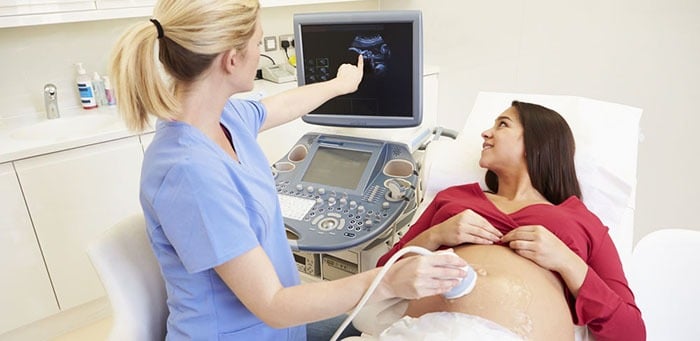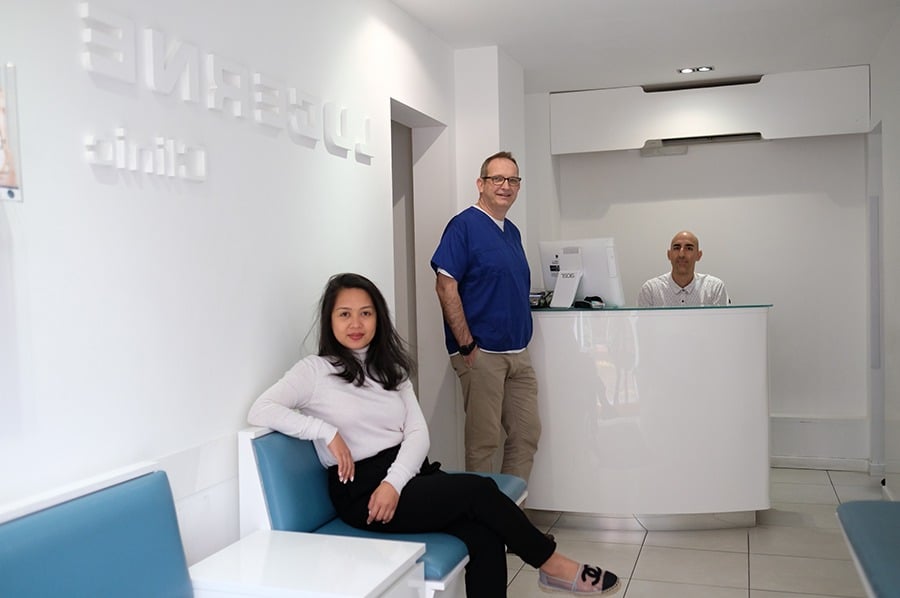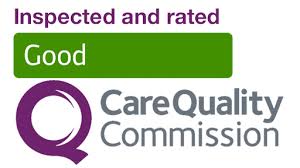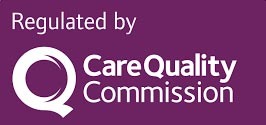What is the NIPT Test?
Non-Invasive Prenatal Testing (NIPT) represents one of the most significant advancements in prenatal care, offering a safe and accurate method for screening chromosomal abnormalities in a fetus. Through a simple blood test, NIPT analyzes fragments of the baby’s DNA circulating in the mother’s bloodstream. This test screens for genetic conditions like Down syndrome (trisomy 21), Edwards syndrome (trisomy 18), and Patau syndrome (trisomy 13) as early as 10 weeks into pregnancy.
Unlike traditional diagnostic tests such as amniocentesis or chorionic villus sampling (CVS), which involve invasive procedures that carry a small risk of miscarriage, NIPT provides valuable genetic information without any risk to the fetus. This makes it an appealing option for parents seeking reassurance about their baby’s health without subjecting themselves to unnecessary risks.
NIPT is not just about safety; it’s also highly accurate. Studies show that NIPT has a detection rate of over 99% for Down syndrome, making it one of the most reliable screening tools available for this condition. However, while NIPT offers a high degree of accuracy, it remains a screening test, not a diagnostic one. Positive results from NIPT are typically followed up with diagnostic tests to confirm the findings.

How Does NIPT Work?
NIPT works by analyzing cell-free fetal DNA (cffDNA) in the mother’s bloodstream. From around the 10th week of pregnancy, small amounts of the baby’s DNA circulate in the mother’s blood. By extracting this fetal DNA, laboratories can screen for chromosomal abnormalities in the fetus. The process is straightforward, requiring only a blood sample from the mother, which is then sent to a specialized lab for analysis.
The test specifically looks for extra or missing copies of chromosomes. Human cells typically contain 23 pairs of chromosomes, and conditions like Down syndrome occur when there is an extra copy of chromosome 21. NIPT can also screen for abnormalities in other chromosomes, including those related to sex chromosomes (e.g., Turner syndrome or Klinefelter syndrome), though the accuracy may vary depending on the condition being tested.
What makes NIPT revolutionary is its ability to deliver results early in the pregnancy, often around 10-12 weeks. Early detection gives parents more time to make informed decisions about their pregnancy, including whether to proceed with further diagnostic testing or to prepare for the potential challenges associated with a chromosomal abnormality.
Benefits of NIPT Testing
NIPT offers several benefits over traditional prenatal screening methods. Its non-invasive nature means there is no risk to the fetus, unlike procedures such as amniocentesis or CVS, which involve inserting a needle into the uterus to collect fetal cells.
The accuracy of NIPT is another major advantage. For conditions like Down syndrome, NIPT has a sensitivity of 99% or higher. This high level of accuracy reduces the likelihood of false positives, which are common in older screening methods like the combined first-trimester screening. A study published in The New England Journal of Medicine showed that NIPT had a false positive rate of just 0.1% for trisomy 21, significantly lower than the 5% false positive rate associated with traditional screening tests.
Parents who receive a negative NIPT result can feel reassured, knowing that their baby is highly unlikely to have one of the tested conditions. For those who receive a positive result, NIPT serves as an early indicator that further diagnostic testing may be needed to confirm the findings.
Another key benefit is the early timing of the test. NIPT can be performed as early as the 10th week of pregnancy, providing answers long before other screening or diagnostic options become available. This early window allows parents to prepare emotionally and medically for the journey ahead.
Who Should Consider NIPT?
While NIPT is available to all pregnant women, certain groups are particularly encouraged to consider the test. Women who are 35 years of age or older are at a higher risk of having a baby with a chromosomal abnormality, making them prime candidates for NIPT. The American College of Obstetricians and Gynecologists (ACOG) recommends NIPT for women in this age group, as the benefits of early detection far outweigh the risks of later invasive testing.
Women with a personal or family history of chromosomal abnormalities are also advised to consider NIPT. Genetic conditions can run in families, and having a reliable screening tool early in pregnancy can help parents prepare for the possibility of an inherited disorder.
Parents who have had abnormal results from earlier prenatal screenings, such as the combined test (which measures levels of certain proteins in the mother’s blood along with an ultrasound measurement of the fetus’s nuchal translucency), may turn to NIPT for more accurate information before deciding whether to pursue invasive diagnostic tests.
Even parents with no known risk factors often choose NIPT for peace of mind. The reassurance that comes with a negative result can alleviate some of the anxiety many parents feel during pregnancy.

Limitations of NIPT
Despite its high accuracy, NIPT has limitations. It is important to understand that NIPT is a screening test, not a diagnostic test. This means that while it can indicate a high or low risk of certain chromosomal abnormalities, it cannot provide a definitive diagnosis. Positive results should always be confirmed with a diagnostic test, such as amniocentesis or CVS.
NIPT primarily screens for three common chromosomal abnormalities: Down syndrome, Edwards syndrome, and Patau syndrome. Although some tests also screen for sex chromosome abnormalities, the range of conditions NIPT can detect is limited compared to comprehensive diagnostic tests. It cannot detect all genetic disorders, and conditions caused by single-gene mutations (such as cystic fibrosis or sickle cell anemia) require different types of testing.
Another limitation is the potential for false positive or false negative results. While rare, false positives can occur, especially for conditions like trisomy 18 or 13. A study published in the American Journal of Obstetrics & Gynecology found that the positive predictive value of NIPT for trisomy 18 was around 80%, meaning that 20% of positive results may be false positives. Conversely, false negatives, where the test fails to detect a chromosomal abnormality, are exceedingly rare but possible.
NIPT vs Other Prenatal Tests
One of the main advantages NIPT holds over traditional screening tests is its non-invasive nature and high accuracy. The combined first-trimester screening test, for instance, measures levels of certain proteins in the mother’s blood and uses an ultrasound to measure nuchal translucency (the thickness of the baby’s neck), but it has a lower detection rate for conditions like Down syndrome compared to NIPT.
A study conducted by the National Institute for Health and Care Excellence (NICE) found that the combined test had a detection rate of around 85% for Down syndrome, significantly lower than the 99% detection rate associated with NIPT. This difference in accuracy makes NIPT the preferred screening option for many parents, especially those seeking the most reliable information available early in their pregnancy.
While traditional screening tests are widely available through the NHS, NIPT is typically offered privately. Some NHS hospitals now offer NIPT as part of their prenatal screening programs for women identified as being at higher risk of chromosomal abnormalities. For other women, private clinics like International Ultrasound Services in London offer NIPT with fast results and expert care.
Diagnostic tests such as amniocentesis or CVS provide definitive answers, but they are invasive procedures with a small risk of miscarriage (estimated to be around 1 in 200 to 1 in 500 for amniocentesis). NIPT provides highly accurate screening results without these risks, making it an attractive alternative for many parents.
What to Expect During the NIPT Process
The process of undergoing NIPT is simple and straightforward. It involves a single blood test, which can be performed as early as the 10th week of pregnancy. There is no need for any special preparation before the test, and the blood draw takes just a few minutes.
Once the blood sample is collected, it is sent to a specialized laboratory where the cell-free fetal DNA is analyzed. Results are usually available within a week, although this timeframe can vary depending on the clinic and laboratory used.
For parents who choose to have their NIPT test at International Ultrasound Services in London, the experience is designed to be as smooth and stress-free as possible. The clinic offers a comfortable environment, expert sonographers, and prompt communication of results. Should the NIPT results indicate a higher risk of a chromosomal abnormality, the team at International Ultrasound Services provides full support, including counseling and referrals for further diagnostic testing if needed.

Addressing Common Concerns About NIPT
One of the most frequent questions parents have about NIPT is whether the test is covered by insurance or the NHS. In many cases, NIPT is not covered by the NHS unless the pregnancy is considered high risk. However, private clinics offer NIPT to all women regardless of risk factors. Many private health insurance plans cover NIPT, but it’s always a good idea to check with your provider.
Another common concern is whether the test is safe for the baby. Since NIPT is non-invasive and only involves a blood draw from the mother, there is no risk to the fetus. This makes NIPT a popular choice for parents who want reliable information without putting their pregnancy at risk.
If the test results are abnormal, parents often wonder what their next steps should be. While an abnormal NIPT result is not a definitive diagnosis, it does warrant further investigation. Parents can choose to undergo diagnostic testing, such as amniocentesis or CVS, to confirm the findings. It’s important to remember that NIPT results are highly accurate, especially for conditions like Down syndrome, so an abnormal result should be taken seriously.
Why Choose International Ultrasound Services?
International Ultrasound Services in London has built a reputation for providing expert prenatal ultrasound care. The clinic’s highly skilled sonographers bring decades of experience to every scan, ensuring that parents receive accurate, reliable results. With state-of-the-art technology and a commitment to patient-centered care, International Ultrasound Services offers a reassuring and professional environment for parents seeking the best prenatal testing options available.
The NIPT test is just one of the many advanced services available at the clinic. Whether you’re looking for early pregnancy scans, reassurance scan, or growth baby scans, International Ultrasound Services provides comprehensive care tailored to your individual needs. The clinic’s experienced team is dedicated to supporting you at every stage of your pregnancy, from your first scan to the moment you meet your baby.










